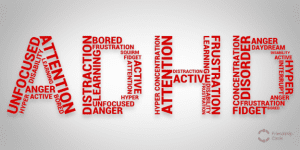
Mindfulness for Adults with ADHD: Practical Interventions
$32.00
This training provides practical interventions for applying mindfulness techniques to support adults with ADHD. Participants will gain insight into the challenges of ADHD and learn actionable strategies to enhance focus, emotional regulation, and self-awareness.
Upon completion of this training, learners will be able to:
- Identify challenges faced by adults with ADHD in managing attention.
- Explain the core principles of mindfulness and their relevance to ADHD.
- Apply specific mindfulness interventions to improve focus and self-regulation.
- Develop tools for fostering self-compassion and present-moment awareness.
Social workers completing this course receive 2 General asynchronous continuing education credits.
For other board approvals, this course qualifies for 2 hours of Evidence-Based Practices and General Skill Building continuing education training.
Course Instructor: Dreya Blume, MSW, LCSW
Recording Date: 10/19/2023
Recorded Live Webinar with downloadable presentation slides and/or handouts, evaluation, and a required quiz. The learner is required to pass with a 70% or higher to achieve the CE certificate of completion. The learner is able to reset the test until a satisfactory score is achieved. CE Training Workshops, LLC, provider #1770, is approved as an ACE provider to offer social work continuing education by the Association of Social Work Boards (ASWB) Approved Continuing Education (ACE) program. Regulatory boards are the final authority on courses accepted for continuing education credit. ACE provider approval period: 8/2/2022 – 8/2/2025. CE Training Workshops, LLC has been approved by NBCC as an Approved Continuing Education Provider, ACEP No. 7091. Programs that do not qualify for NBCC credit are clearly identified. CE Training Workshops, LLC is solely responsible for all aspects of the programs. System Requirements: Firefox, Chrome, Brave, Safari, Edge on any modern operating system (Windows, MacOS, Linux, Android, iOS). A desktop browser is recommended. We do not provide support resources for issues encountered using a mobile device. For more information about our policies and board approval statements, please visit our FAQS page.
Dreya Blume, MA, LCSW is a licensed clinical social worker, with her MSW from Radford University and an MA in anthropology from the University of Hawaii. Dreya has twenty years of experience working in mental health, from case management to intensive in-home services to leading groups for addicts in recovery.
Mindfulness for Adults with ADHD: Practical Interventions (2 HR)
I. Understanding ADHD in Adults
- Overview of the three DSM-5 ADHD presentations: Inattentive, Hyperactive-Impulsive, Combined
- Diagnostic criteria for adult ADHD including symptom duration, early onset, and functional impairment
- Key symptoms: distractibility, impulsivity, disorganization, restlessness, difficulty sustaining attention
- Emotional and social consequences of undiagnosed or untreated ADHD in adults
II. Foundations of Mindfulness
- Definition and core principles of mindfulness: Paying attention on purpose, Being present in the moment, Practicing non-judgmental awareness
- Mindfulness as a trainable skill for emotional and cognitive regulation
III. Applying Mindfulness with Adults with ADHD
- Strengthening meta-awareness to improve attention control
- Building self-monitoring and emotional regulation skills
- Enhancing non-reactivity and present-moment awareness
- Supporting acceptance and self-compassion to reduce reactivity and impulsivity
Understanding the neurological benefits: prefrontal cortex development and dopamine increase
IV. Evidence Supporting Mindfulness for ADHD
- Research highlights, including UCLA’s MAPs for ADHD study
- Positive outcomes: improved focus, reduced anxiety and depression, enhanced well-being
- Recommendations for structured programs that include social support, accountability, and consistency
V. Mindfulness-Based Interventions and Practices
- Exercise 1: One-minute sensory observation (Beginner’s Mind)
- Exercise 2: Breath-focused meditation with and without labeling distractions
- Exercise 3: Guided meditation segment
- Exercise 4: STOP Practice (Stop, Take a breath, Observe, Proceed)
- Exercise 5: Loving-Kindness Meditation
- Exercise 6: Savoring the senses – slowing down and enhancing conscious experience
- Discussion on mindfulness apps vs structured programs: strengths and challenges for ADHD
VI. Complementary Practices
- Role of yoga and movement-based mindfulness
- Incorporating mindfulness into everyday activities and routines
- Leveraging sensory experiences to ground and anchor attention


